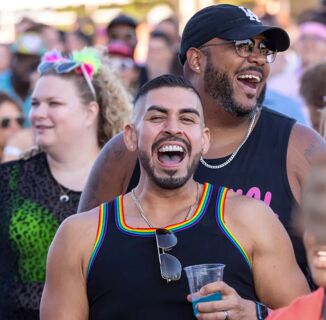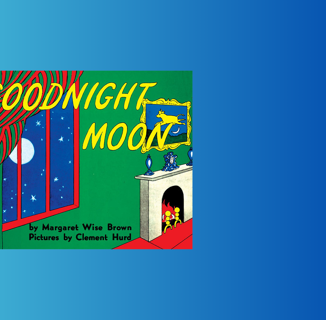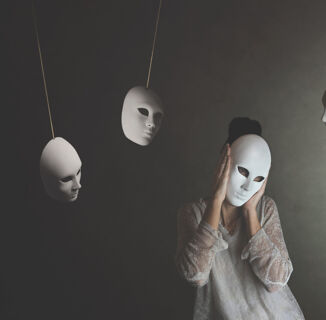Halfway through last night’s awards show I joked my headline for the night would be “The 2019 Golden Globes: Not Too Homophobic Yet.”
By that point, openly gay actor Ben Whishaw had taken the stage to accept an award for his very gay role in the very gay Russell T. Davies’ gay-themed A Very English Scandal, and he’d even used the word “queer” in dedicating his award to the real-life Norman Scott he portrayed in the show. Scott, for those who have yet to watch the Amazon mini-series, was the secret, kept lover of British politician Jeremy Thorpe (played by the highly heterosexual Hugh Grant). Scott said that he was “deeply moved” by the speech.
Other wins satisfied our gay agenda, to be sure (Gaga’s win for “Shallow,” for one – sorry, Linda Perry), but there remained an interesting trend of heterosexuals winning for portraying queer people. Darren Criss took home Best Performance by an Actor in a Limited Series or Motion Picture Made for Television just a few weeks after saying he would never take a gay role from a gay actor again, and when the cast of The Assassination of Gianni Versace took the stage, it wasn’t openly gay EPs Ryan Murphy or lesbian Nina Jacobson who spoke about homophobia on the mic, nor gay writer Tom Rob Smith, but straight producer Brad Simpson.
“Gianni Versace was murdered 20 years ago,” Simpson said, speaking for his team. “He was one of the very few public figures who was out during a time of intense hate and fear. This was the era of ‘Don’t ask, don’t tell.’ It was the Defense of Marriage Act era. Those forces of hate and fear are still with us. They tell us we should be scared of people who are different than us. They tell us we should put walls around ourselves.”
For a show like Versace, this was fitting. Everyone involved with the series spoke passionately about Versace‘s raison d’être throughout the show’s run and subsequent press and now awards season. Versace’s being gay, as well as internalized, public, and familial homophobia, were not only central to the plot, but the point.
Compare that to the Queen biopic Bohemian Rhapsody. Rami Malek’s win for Best Actor was not as big of a surprise, perhaps, as the film’s Best Picture win. The highly contentious portrait of the known queer, HIV-positive frontman Freddie Mercury had critics upset about the lack of queer context available in the final cut, especially in relation to his relationship with Jim Hutton. So while Simpson acknowledged Versace’s queerness and homophobia being central to his respective project, Malek (also heterosexual) did not touch on Mercury’s identity in any certain terms. It was the same way through much of the press tour for Bohemian Rhapsody. In our own interview with Malek, he was loath to refer to Mercury as a queer icon.
“Thank you to Freddie Mercury for giving me the joy of a lifetime,” Malek said at the end of his acceptance speech. “I love you, you beautiful man. This is for – and because of – you, gorgeous.”
Backstage after their wins, though, it was clear the cast and crew of Bohemian Rhapsody wanted nothing to do with the sexuality conversation. When asked about some critics not praising the film, the Queen guitarist Brian May couldn’t even bring himself to speak to queerness directly. Instead, he says some judged the trailer too harshly but once they saw the film itself, they found Bohemian Rhapsody “did the thing well.” That thing? His queerness – and as far as it being portrayed accurately? Still arguable. And despite having been pressed about and criticized for ignoring much of Mercury’s queerness, Malek and his cohorts’ conversations about Mercury and the film are devoid of that investigation. Every backstage interview Malek had was without mention of Mercury’s being queer, which, although not central to the film (a choice, of course), was still a huge part of his legacy, whether the surviving members of Queen and the crew behind Bohemian Rhapsody like it or not.
Though Mercury was widely known to be bisexual, he never came out publicly during his lifetime – which is the same case for Dr. Don Shirley, the queer classical pianist portrayed by Mahershala Ali in the winner for Best Picture – Musical or Comedy. Green Book (which also won Best Screenplay) only slightly hints at Shirley’s sexuality in a brief scene where it’s mentioned he’d been arrested for taking part in a gay sex act at a YMCA while on tour. The rest of the film is devoid of any sexual or romantic information about him at all, which is desexualizing more than anything, but more in tune with the real Shirley. According to family members, Shirley’s response to people asking if he was gay was the tongue-in-cheek response: “Why? Are you interested?”
But as Shirley was not nearly as well-known as Mercury, nor regarded for his queerness as part of his persona, Green Book can only truly be read as not-straight with a provided context often left out of the cultural conversation. Bohemian Rhapsody, on the other hand, ran with a revisionist history that seemed to extend beyond the film itself.
Olivia Colman also won for her role as the also very real queer Queen Anne in The Favourite, and thanked her “bitches” (aka co-stars/on-screen lovers Emma Stone and Rachel Weisz), but made no mention of the Queen herself. Even though Colman’s version of the royal matriarch was high parody based in some kind of rumored reality, the film and cast were never hesitant about the Sapphicness on flamboyant display. And even though it was based in a time where homosexuality was not only uncouth but illegal, homophobia played a smaller role in that film than it did in the others – and didn’t feel as palpable from cast and crew during press runs.
By the Globes’ end, Ben Whishaw was the only openly LGBTQ actor to win (other nominees like Billy Porter and the team from Pose went home empty-handed), and perhaps it’s no surprise he’s the only one who made any sort of specific mention of the queer person who he portrayed, and how it carried a weight stronger than that of one singular gay man. Still, it’s worth noting that straight Brad Simpson of Versace also used his opportunity at the mic to address the theme of homophobia in a way that also included empathy. Because LGBTQ people shouldn’t bear the burden of being the only ones to bring these themes to light, just as Sandra Oh and Regina King shouldn’t have to be the only women who spoke up for inclusion and change while Michael Douglas and all of the other straight white dudes get to use their time to thank their publicists and family and money people. Because Michael Douglas can play Liberace and be a mouthpiece for a closeted gay man one time in his life and take off the glistening cape, but Billy Porter will still be wearing his. Because not only LGBTQ people care about LGBTQ stories and history.
The powers behind Bohemian Rhapsody and Green Book might not acknowledge their respective films or protagonists as queer, but how they handle the press and public conversations surrounding the very real queer people at the center of their stories can be just as harmful as their narrative of erasure. So while it may seem like the problem is straight people playing gay or telling gay stories (especially those based on real people and events), the heart of the issue is how the people and the stories are treated throughout – how the films inform their legacies, and vice versa. Because queer people can and should play heterosexual roles, too (see: Whishaw currently starring quite convincingly as the straight dad in the Return of Mary Poppins) – and use their platforms to speak to things outside of homophobia and relevant LGBTQ issues.
“It needs to be an even playing field for everybody, that would be my ideal,” Whishaw told reporters backstage after his English Scandal win. “I don’t know how far we’re away from that.”
This current awards season could serve as a useful barometer.
Help make sure LGBTQ+ stories are being told...
We can't rely on mainstream media to tell our stories. That's why we don't lock our articles behind a paywall. Will you support our mission with a contribution today?
Cancel anytime · Proudly LGBTQ+ owned and operated
Read More in Culture
The Latest on INTO
Subscribe to get a twice-weekly dose of queer news, updates, and insights from the INTO team.
in Your Inbox













